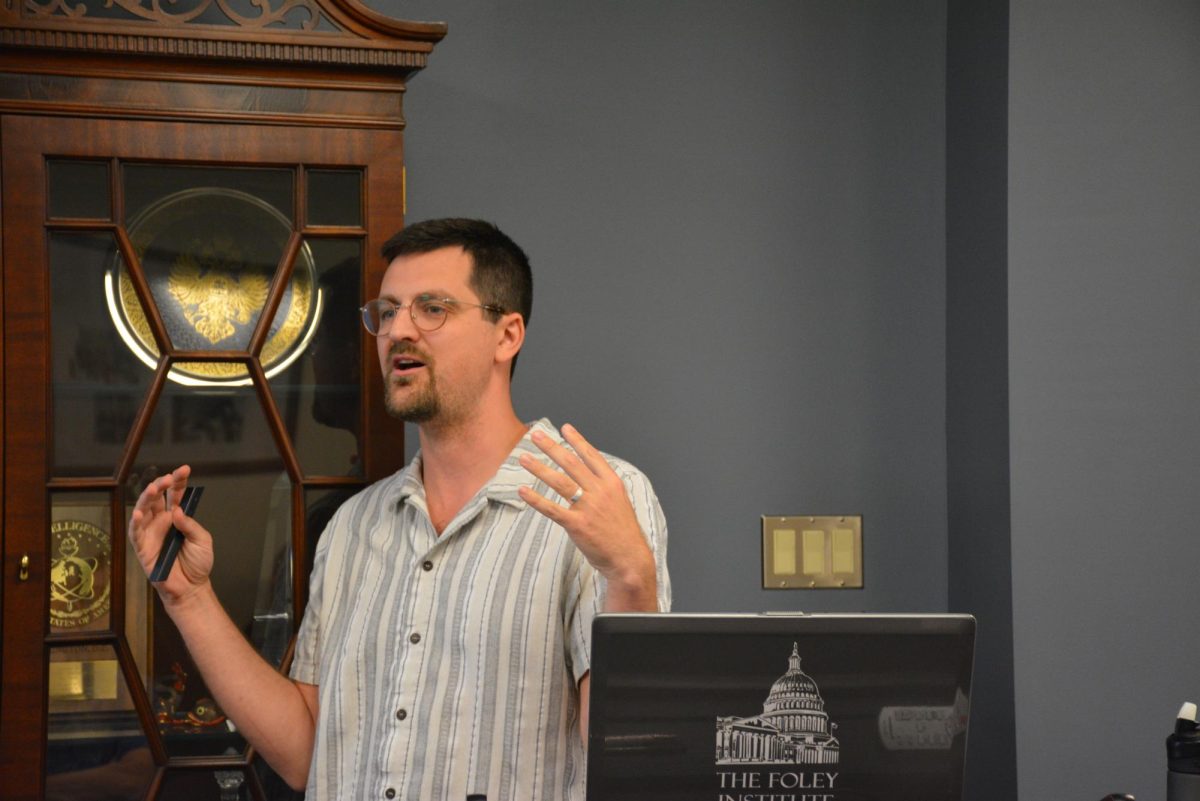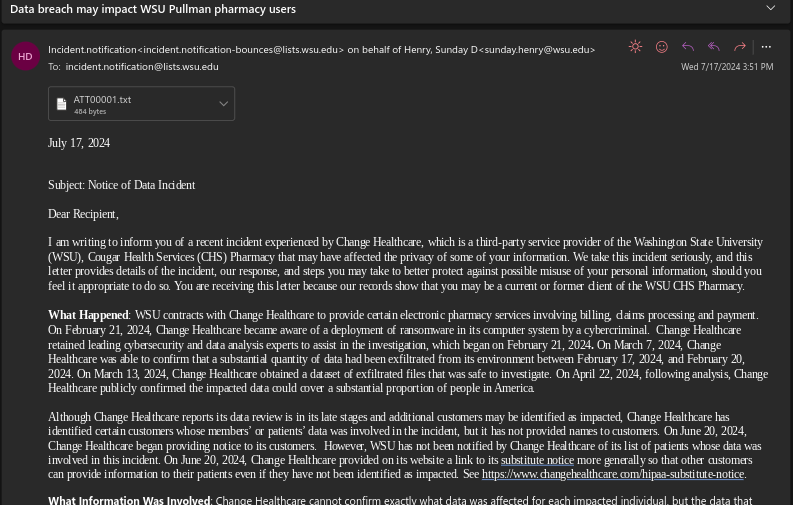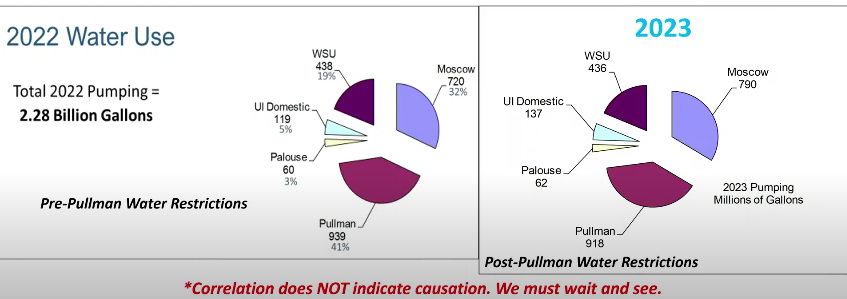Dylan Bugden, WSU Boeing Distinguished Assistant Professor in Environmental Sociology, presented his research regarding the role of partisanship in climate change policies on Tuesday at The Foley Institute.
Bugden presented the research he completed for his 2022 study titled “Denial and Distrust: Explaining the Partisan Climate Gap.” He broke down his research into three parts: the trajectory and history of partisanship and climate change in the U.S., recent developments among Republicans and Democrats and projected trajectories on the left and right.
Bugden first showed data portraying how members of both the Republican party and Democratic party equally believed in climate change at the beginning of the climate change movement in the 1980s. However, Bugden said over the years an increasing number of Democrats began to see the issue of climate change, while the number of Republicans remained approximately the same.
A common misconception that people tend to have about members of the Republican party, which is that they do not believe in science or they do not think that climate change is real. According to Bugden’s research, many Republicans do recognize that climate change is a problem — yet they still oppose changes to climate policy, he said.
This is because many Republicans are strictly against government involvement in the economy, regardless of whether or not they believe in the scientific data, Bugden said. Adoption of climate change policies would mean government interference with regulations pertaining to businesses and corporations.
Furthermore, Bugden said that Republican attitudes toward science are heavily rooted in the conservative political movement, which has long opposed scientific views in order to defend conservative ideology. He cited the controversy surrounding education of evolution in schools when he was growing up as an example and said it also pertains to the controversy we see today surrounding education of critical race theory.
“Climate partisanship is not primarily about science,” Bugden said. “It’s about climate policy.”
Following the pandemic, Republican distrust in science has been greatly increasing, which can be attributed to elite partisanship, Bugden said. However, the younger Republicans are noted to have been diverging from the ideologies of their parents and grandparents, becoming more receptive to changes in climate policy.
“But even when the very last Republican voter or politician says, ‘Yes, climate change is happening. There is no evidence that we’re suddenly going to see bipartisan climate policy,” Bugden said. “This is a much deeper rooted problem.”












